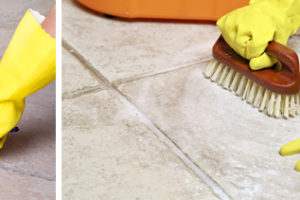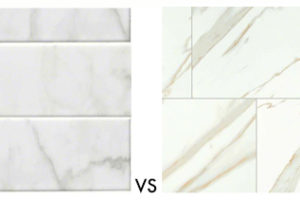What is the difference between Granite and quartz countertops?
Unlike granite countertops, quartz countertops are not 100 percent natural stone. Quartz countertops require less maintenance than granite, are less likely to stain and are available in more colors.
Granite countertops begin as single sheets of stone mined from quarries that are then formed into countertops. They are a 100 percent natural stone product that includes any flaws and imperfections present in the stone. Quartz countertops are a manufactured product made by mixing natural stone quartz with a resin binding agent. This process allows the manufacturer to create a countertop that is extremely durable and free from flaws.
Granite is very porous and requires periodic sealing to prevent liquids from seeping into the stone and causing stains. Due to the binding agent, quartz countertops are not porous and resist staining without the need for sealing, but they can be damaged by excessive heat, and prolonged exposure to sunlight may cause discoloration. Granite countertops, although very hard, can chip and crack, and flaws in the stone may lead to splitting, while quartz countertops are more flexible and less easily damaged.




